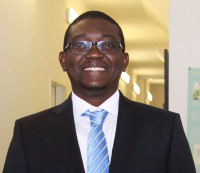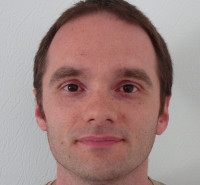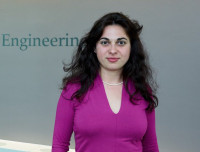Finance, Investment & Risk Management
Societal Challenges
Microfinance & Financial Inclusion
Insurance & Risk Management
Economic Loss & Disaster Risk Financing
Sustainable Finance
Post-Doctoral Fellowships
Nigeria
Encouraging financial inclusion in Nigeria
Predicting consumer’s choice behaviour
More specifically, his scientific objective is to develop models that can describe, and consistently examine and predict consumer’s choice behaviour when faced with different financial products or policies. To develop these models, a series of experiments will be conducted on a sample of farm households in all four agro-ecological zones of northern Nigeria (Sahel, Sudan, Northern and Southern guinea savanna regions). The data collected will help evaluate individual decision maker’s preference structures, as well as risk perceptions, risk aversions and subjective beliefs. It is also worth noting that the experiments will be designed to acknowledge gender-based differences: «studies have observed gender differences in a number of different domains, including investment. Thus, I intend to contribute to literature on gender differences in economic experiments by controlling for preference differences between men and women.»
By taking into account risk aversion and subjective beliefs and assessing their effects on insurance purchase decisions, the approach of Dr. Bello’s project is right on target to provide timely answers to one of today’s biggest issue in Nigeria: financial exclusion. Indeed, a customer-oriented approach to understanding financial inclusion in Nigeria is important not only in its own right, « but also in terms of response to the increasing significance of financial services in the agricultural sector and the anticipated growth in the future market for such services », as the researcher puts it himself.

Muhammad
BELLO
Institution
International Institute of Tropical Agriculture
Country
Nigeria
Nationality
Nigérianne
Related articles
Finance, Investment & Risk Management
Societal Challenges
Microfinance & Financial Inclusion
Emerging Market
Inequality & Poverty
Joint Research Initiative
China
2021.04.19
Understanding the Financial Lives of Low Income Households in China
Leveraging financial diaries research methodology, this joint initiative aims to provide actionable insights about the financial lives of low-income households... Read more

Xiugen
MO
Chinese Academy of Financial Inclusion
Finance, Investment & Risk Management
Pandemics & Infectious Diseases
Economics & Global Development
Covid-19
Financial Markets, Modelling & Pricing
Economic Loss & Disaster Risk Financing
Insurance & Risk Management
AXA Award
France
2020.08.31
An Extreme Value Model For the Analysis of the COVID-19 Pandemic and Its Impact, and the Mitigation of Future Related Crises
The second strand of work will harness the vast wealth of functional data at our disposal to construct estimators for... Read more

Gilles
STUPFLER
